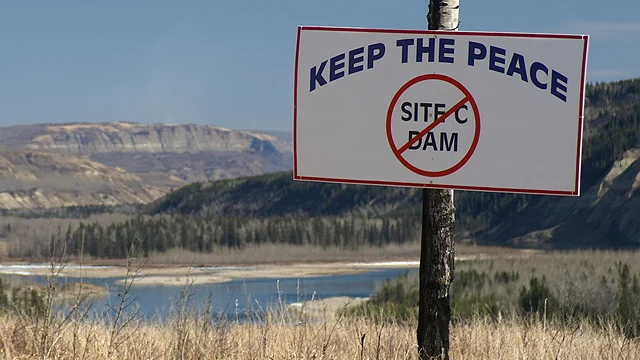Research showed her that plants have impressive water purifying properties, so Lee began searching fresh water bodies around Greater Victoria for an algae that would meet her requirements. At Swan Lake, she found what she was looking for – Azolla filiculoides is an invasive macroalgae known to exist in fresh water bodies around the world and to have absorbing and purifying properties. A study conducted in Iran in 2014 showed the algae could yield up to 58,700 litres of oil per hectare, or about 23,765 litres per acre. The oil can then be used in a biodiesel blend.
New funding for First Nations water projects an 'important step' minister says
Canada's infrastructure minister says new funding for clean water, wastewater and storm water projects announced last week by the province and federal government won't solve all of the long-standing water infrastructure problems in First Nation, but it's an important step. The two governments jointly announced $69.5 million in funding for projects in 37 First Nations, including around a dozen in northwestern Ontario. Northwest Angle 33 and Onigaming will receive money for water treatment plant upgrades. Grassy Narrows will receive funds to replace sewage pumping stations. And Seine River First Nation will receive money to upgrade its water treatment distribution system.
Liberal government will miss drinking water target by years, CBC News survey shows
The Liberal government will miss a target it set during the 2015 federal election campaign to lift all long-term drinking water advisories in First Nations by March 2021 — in some cases by several years — according to a survey of communities by CBC News. More than a dozen First Nations said projects to end long-term drinking water advisories won't be completed by the promised deadline.
Amnesty uses World Water Day to highlight environmental racism in Canada
“Far too often, governments in Canada have demonstrated that they place little value on the health and well-being of Indigenous peoples and the revitalization of their cultures and traditions,” Tara Scurr, business and human rights campaigner with Amnesty International Canada, said in a statement Thursday.
Canada remains opposed to Aboriginal rights and valuing Indigenous lives
Grassy Narrows First Nation has been beset with indifference for their lives and their rights by the Canadian government for five decades. From 1962 to 1970, the Dryden paper mill dumped 10 tonnes of mercury into the Wabigoon River upstream from Grassy Narrows. This polluted fish and drinking wells. The federal and provincial governments claimed as late as 2016 that the river would clean out the mercury naturally. Despite reports as early as 1984 stating government action was needed. Still nothing has been done. The Canadian government’s utter disregard for Indigenous lives is so perverse that until recently it has not allotted resources for researchers to intensively study the health impact of the mercury. Rather, the bulk of research done has been by a Japanese research team that in 2012 found at least one resident who was born with mercury poisoning and, in 2007, two children born with brain cancer and who experienced seizures.






